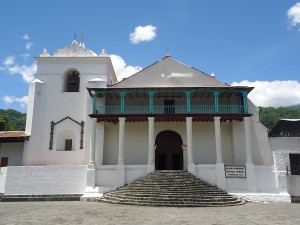Yesterday, the kids, my sister Patrice and I saw “Lion.” As you probably know, the film tells the story of a five-year-old boy in India, Saroo, who is separated from his older brother at a rural train station. When Saroo gets off the train hours and miles later, he is alone and lost in the teeming city of Calcutta. Saroo spends several harrowing months surviving on the streets before a woman who runs an orphanage places him with loving adoptive parents in Tasmania, Australia, where he lives for the next twenty years. As an adult, Saroo is happy and healthy and seems well-adjusted. But, inside, Saroo is tormented by the loss of his family in India—Where is his mother? What happened to his brother? And wouldn’t they have spent the past twenty years worrying about him?
Through the wonders of the newly hatched Google Earth and after months and years of obsessive calculation, Saroo is able to recreate his journey and locate his family in India. His mother, thankfully, is alive. His brother, tragically, was killed on the same day he and Saroo were separated. The film ends with a gorgeous scene of reunion.
If you’re reading this, you may know my daughter Olivia is fourteen, my son Mateo twelve. We searched for and found each of their birth mothers in Guatemala when the children were seven. We visit Guatemala every year, often with my sister Patrice, and are grateful we are able to maintain birth family contact.
Okay. Back to the movie. Caution: The themes are mature. The theme of adoption, first. The theme of losing one’s family and being separated from people who share one’s blood. The theme of not-knowing where your birth mother is or what happened to your siblings. As every adoptive parent knows: Those themes can trigger very strong reactions in our children. Nightmare-level reactions. And they’re front and center in ”Lion.”
Second, the theme of treachery by adults. When Saroo is lost and alone, bad people do bad things, to him and to other children. Nothing awful is shown on screen—everything is alluded to and suggested. Yet, still: It’s terrifying to watch, certainly for young children, and, depending on the individual, for tweens, teens, or adults.
That said, the film was mesmerizing. My normally squirrelly kids didn’t move or talk. They forgot to eat their popcorn. We knew how it would end, but the ending still deeply moved us. When Saroo finally walks through the streets of his village, remembering places and colors and smells, and then his mother appears and they recognize each other and embrace, my very cool teenage daughter, who rarely reveals her emotions, sobbed. Broke down, weeping. Twelve-year-old Mateo was also moved, although he didn’t cry. “Here come the waterworks,” he whispered to me as he leaned in close. “You and Olivia.”
The film allowed Olivia to witness a reunion from the outside—as an observer instead of a participant—and gave her room to experience emotions that may overwhelm her when the reunion is her own. She reacted the same way I react when I see either of my kids with their birth mothers, every time. A complex mix of great love and great sadness, resulting in many tears.
Afterward, Olivia said “Lion” was the best movie she’d ever seen. Her summary: “Saroo grew up in a safe place and then he found his birth family. That’s a good story.” Mateo especially liked the relationship between the brothers; my son’s greatest distress came with the news that Saroo’s brother had been killed. My sister Patrice saw the movie twice. She said the second time around, with us, the film seemed “even sadder.” After a moment, she added, “Aren’t you glad you found their birth mothers? So they don’t have to go through life wondering.”
Yes. Yes. Yes.
“Lion” is based on the memoir by Saroo Brierley, “A Long Way Home,” which I recommend, and which our Adoption Book Group is discussing later this month.
Consider seeing “Lion,” by yourself or with your children. Like all powerful works of art, it will make you feel and think. It may leave you changed. ~



 ShareThis
ShareThis